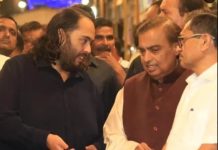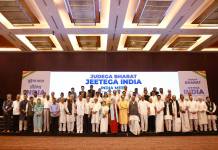Sharing his view, All India Muslim Women Personal Law Board (AIMWPLB) President Shaista Amber said the Supreme Court’s comment on enforceable fundamental right was historic and “the decision of the Supreme Court will definitely benefit Muslim women and uphold their dignity”.
“Today is a day of hope of betterment and justice for Muslim women. At least we now feel that the betterment of Muslims has started,” she said.
Taking a counter view, some clerics reiterated their stance that the petitions challenging the validity of triple talaq were politically motivated and that the practice was part of Muslim personal law.
All India Muslim Majlis-e-Mushawarat (AIMMM) President Navaid Hamid said,
“It is a religious issue. The Supreme Court should give the Muslim community more time evolve a strategy and resolve this contentious issue.”
“The All India Muslim Personal Law Board (AIMPLB) clearly says that triple talaq is a part of Islam. These petitions are politically motivated,” added Maulana Kazmi, a cleric.
AIMPLB member and senior advocate Zafaryab Jilani said triple talaq is part of Muslim personal law but “misusing it is a sin”.
His colleague, Maulana Khalid Rasheed Firangi Mahali, executive member of the AIMPLB, was of the view that only 0.1 per cent of men were misusing it.
The apex court began hearing a batch of pleas challenging the constitutional validity of triple talaq and nikah halala, under which a divorced Muslim woman has to marry again, consummate the marriage and then break it if she wants to go back to her first husband.
A five-judge constitution bench, headed by Chief Justice J S Khehar, however, clarified that polygamy among Muslims may not be deliberated upon as it is not connected with the triple talaq issue.
The bench dealing with the issue also comprises Justices Kurian Joseph, R F Nariman, U U Lalit and Abdul Nazeer, all from different religious backgrounds.
The apex court also said if it came to the conclusion that triple talaq was fundamental to religion, it would not go into the question of its constitutional validity.
The bench said it would deal with the aspect of whether triple talaq formed part of the enforceable fundamental right to practice religion under the Constitution and would like to peruse the prevalent laws in various Islamic countries on the issue.
The bench is also taking up the main matter on its own as a petition titled “Muslim Women’s quest for equality”.
The apex court had on its own taken cognisance of the question whether Muslim women faced gender discrimination in the event of divorce or due to other marriages of their husbands.
















